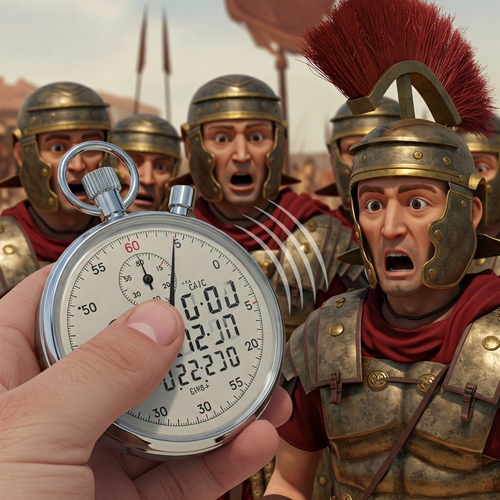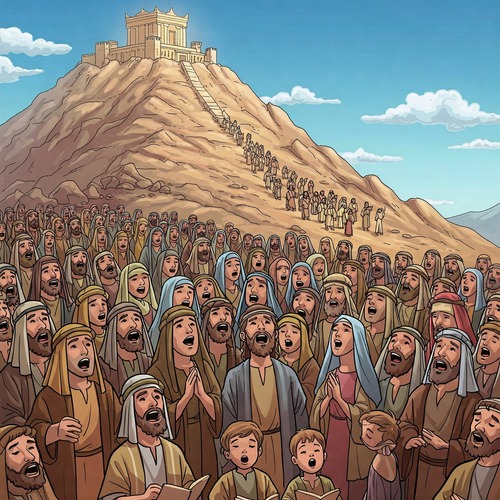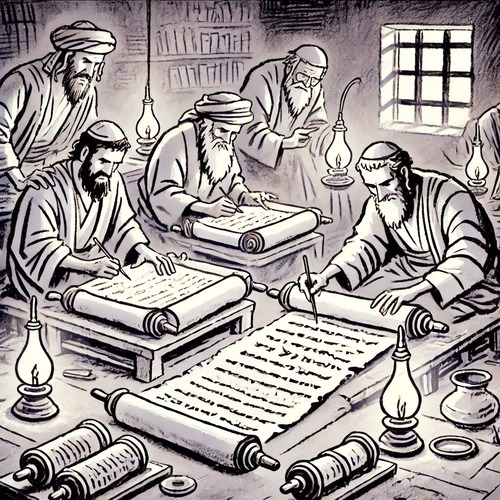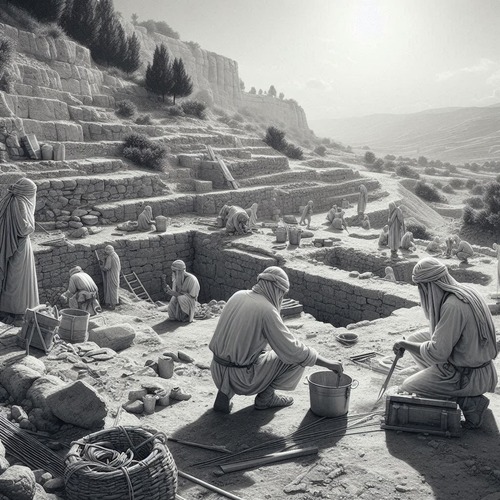The Death of Judas: Making Sense of Biblical Accounts
Did Judas Hang Himself Or Die of a Fall?
The death of Judas Iscariot is one of the most sobering epilogues in biblical history. The New Testament provides two accounts of his death: Matthew’s direct narrative and Luke’s record of Peter’s description in Acts. While sceptics have often pointed to these accounts as contradictory, a thoughtful analysis reveals their fundamental harmony and demonstrates the reliability of Scripture. A careful examination reveals not contradiction but complementary details that paint a complete picture of the tragic event.
THE BIBLICAL ACCOUNTS
Matthew’s Account (Matthew 27:3-10): Matthew presents the immediate aftermath of Jesus’s condemnation, writing: “When Judas, who had betrayed him, saw that Jesus was condemned, he was seized with remorse and returned the thirty pieces of silver to the chief priests and the elders… Then he went away and hanged himself” (Matt. 27:3, 5). Matthew continues by describing how the priests used this blood money to purchase the Potter’s Field as a burial ground for foreigners.
Luke’s Account in Acts (Acts 1:16-20): In Acts, Peter describes how Judas “fell headlong, his body burst open and all his intestines spilled out” (Acts 1:18). He also mentions Judas “bought a field” with his reward of wickedness, which became known as the Field of Blood.
THE DEATH OF JUDAS: HARMONISING THE ACCOUNTS
Rather than contradicting each other, the accounts may be read as providing different perspectives of the same event, much like witnesses describing a car accident from different vantage points. The complete sequence likely unfolded as follows:
- Judas hanged himself (Matthew 27:5)
- A while later, whether due to rope failure or natural decomposition, his body fell and burst open (Acts 1:18)
- The field where this occurred became known as the Field of Blood
Matthew Poole’s Commentary seems to agree. Poole suggests Judas hanged himself as described in Matthew, and later, his body fell and burst open as described in Acts. This explanation harmonises the two accounts by proposing both events occurred sequentially. John Gill’s Exposition and the Dutch Annotations on the Bible also suggest a similar approach to reading the texts.
The seeming discrepancy about who purchased the field—Judas (Acts) or the priests (Matthew)—is readily resolved when we consider ancient Near Eastern commercial customs. While the priests physically made the purchase, it was legally considered Judas’s transaction since it was his money. The principle of agency remains common in modern law: when someone’s money is used in a transaction, they can be considered the technical purchaser even if others execute the deal.
THEOLOGICAL IMPLICATIONS
Divine Sovereignty: The harmonious nature of these accounts demonstrates God’s sovereign control over even the darkest human actions. Both accounts emphasize the fulfillment of prophecy, showing that even Judas’s betrayal and death served God’s predetermined purpose. As Peter declares in Acts, this was the fulfillment of what “the Holy Spirit spoke long ago through David” (Acts 1:16).
The Nature of False Repentance: Matthew’s account of Judas’s remorse (μεταμεληθεὶς) reveals the crucial distinction between worldly sorrow and true repentance. Despite his intense emotional regret, Judas turned to suicide rather than to Christ. This stands in stark contrast to Peter’s restoration after his denial, illustrating the difference between godly and worldly sorrow described in 2 Corinthians 7:10.
PROPHETIC FULFILLMENT
The Zechariah/Jeremiah Citation
Matthew’s attribution of the prophecy to Jeremiah, when elements appear in Zechariah, reflects the Jewish practice of citing the more prominent prophet when combining prophetic references. The quoted prophecy draws from both Jeremiah’s Potter’s Field imagery (Jeremiah 18-19) and Zechariah’s thirty pieces of silver (Zechariah 11:12-13), demonstrating the unified witness of prophetic Scripture.
Typological Significance
The Field of Blood serves as a powerful type in biblical theology. Just as David’s betrayer (referenced in the Psalms) prefigured Judas, the blood-bought field represents the corruption of covenant unfaithfulness. That it became a burial ground for foreigners ironically points to the gospel’s eventual spread to the Gentiles through Christ’s blood.
CONCLUSION: THE DEATH OF JUDAS
Far from contradicting each other, the accounts of Judas’s death in Matthew and Acts provide complementary details that demonstrate the historical precision and theological depth of Scripture. When examined carefully, these accounts reveal God’s sovereign hand in fulfilling prophecy and present enduring lessons about the nature of true repentance. The apparent discrepancies, when properly understood, actually strengthen our confidence in Scripture’s reliability, as they display the hallmarks of independent eyewitness testimony rather than artificially harmonised accounts.
The death of Judas stands as a sobering reminder of the difference between mere remorse and true repentance, between proximity to Christ and genuine faith in Christ. In God’s providence, even this dark episode serves to highlight the truth and reliability of His Word.
THE DEATH OF JUDAS—RELATED FAQs
Doesn’t your harmonisation attempt seem like force-fitting texts to avoid admitting contradictions? Historical accounts regularly provide complementary details that initially seem contradictory but actually illumine different aspects of the same event. Just as modern police detectives expect witnesses to focus on different details without invalidating each other’s testimony, these biblical accounts demonstrate the hallmarks of genuine historical reporting rather than artificial harmonisation. The very existence of these apparent tensions actually strengthens the case for authenticity, as fabricated accounts would likely have been smoothed out.
Why don’t other gospels (Mark, Luke, John) mention Judas’s death? Each gospel writer had specific theological and narrative purposes that guided their content selection. Mark and John focus intensely on Jesus’s death and resurrection, while Luke reserves the account for Acts where it serves his purpose of explaining Matthias’s selection. This selective reporting aligns with John’s explicit statement that many other events went unrecorded (John 21:25).
How long was Judas’s body hanging before it fell? While Scripture doesn’t specify the timeframe, Jewish law required prompt burial of the dead (Deuteronomy 21:23), suggesting the discovery was likely within days rather than weeks. Environmental factors in Jerusalem’s climate could have hastened decomposition, leading to the gruesome details described in Acts.
Did Judas die in the Potter’s Field itself? The text doesn’t explicitly state whether Judas died in the field that was subsequently purchased or elsewhere. However, the field’s nickname (“Field of Blood”) and its association with both his death and its purchase suggests it was likely the location of both events.
Could the rope have been deliberately cut rather than breaking naturally? While this is possible and has been suggested by some commentators, adding such speculations goes beyond the text and isn’t necessary for harmonising the accounts. Both Matthew and Acts focus on the theological significance of Judas’s death rather than the forensic details.
Why does Luke in Acts attribute the field purchase to Judas when Matthew says the priests bought it? Ancient Near Eastern commercial law often attributed purchases to the source of the money rather than the executing agent. Similar legal principles exist today—if someone’s money is used to buy property through an agent, they’re considered the technical purchaser despite not conducting the transaction personally.
Why don’t we have any historical records outside the Bible confirming these events? First-century Jerusalem was a time of significant unrest, culminating in the city’s destruction in 70 AD, which resulted in the loss of many local records. Additionally, the death of a disgraced former disciple wouldn’t have warranted official Roman documentation, especially given the much more significant events surrounding Jesus’s crucifixion and the early church’s persecution.
THE DEATH OF JUDAS—OUR RELATED POSTS
Editor's Pick

Did Jesus Die Too Soon? Was Pilate’s Surprise Unfounded?
Sceptics point to Jesus' relatively short time on the cross as evidence the Gospel accounts are unreliable. After all, when [...]

Shouldn’t the Book of Enoch Be In the Bible? Why Isn’t It?
The Book of Enoch has fascinated scholars, theologians, and curious readers for centuries. Mentioned in the New Testament and revered [...]

‘Out of Egypt I Called My Son’: Did Matthew Misuse Hosea 11:1?
When Matthew quotes Hosea 11:1 in his Gospel—“Out of Egypt I called my son”—he draws a connection that has puzzled [...]

Bible Allusions: How They Enrich Our Grasp of God’s Word
Ever experienced that moment when you're reading Scripture and suddenly recognise an echo of another passage? That spark of recognition [...]

Old Testament Theophanies: What Purposes Did They Serve?
Throughout the Old Testament, we encounter remarkable moments when God manifests Himself in visible, often tangible forms to His people. [...]

When Words Fail: How the Holy Spirit Helps Us in Our Prayers
Ever sat down to pray and found yourself at a complete loss for words? Or perhaps you’ve prayed diligently but [...]

Isaiah 64:6: How Are Our Righteous Deeds Like Filthy Rags?
“We have all become like one who is unclean, and all our righteous deeds are like a polluted garment.” — [...]

The Greatest Yet the Least: How Is John the Baptist Both?
In Matthew 11:11, Jesus makes a statement that has puzzled Bible readers: “Truly I tell you, among those born of [...]

The Pilgrim’s Progress: Journeying Through the Psalms of Ascent
The Psalms of Ascent (Psalms 120-134) are a remarkable collection of fifteen songs that have guided God's people for millennia. [...]

Not Home Yet: How Scripture’s Exile Theme Shapes Our Faith
When we read Scripture carefully, a striking pattern emerges: God’s people are almost always on the move, displaced, or living [...]
SUPPORT US:
Feel the Holy Spirit's gentle nudge to partner with us?
Donate Online:
Account Name: TRUTHS TO DIE FOR FOUNDATION
Account Number: 10243565459
Bank IFSC: IDFB0043391
Bank Name: IDFC FIRST BANK






